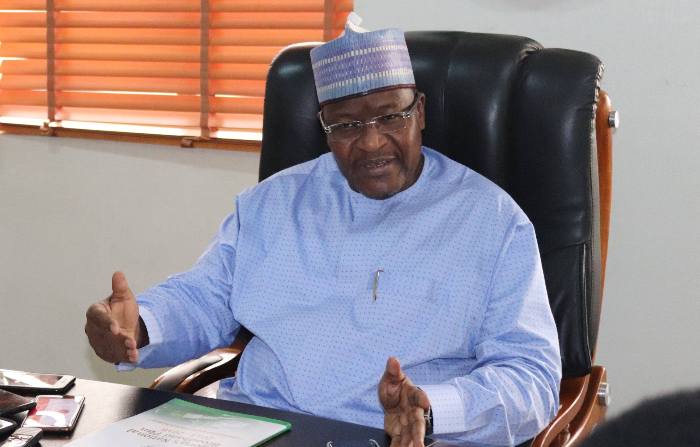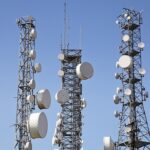Nigeria’s active telephony subscribers have increased from 203million to 208m with teledensity standing at 108.92 per cent, the Nigerian Communications Commission (NCC) has said.
The NCC’s Executive Vice Chairman (EVC), Prof Umar Garba Danbatta who disclosed this in a statement on Thursday added that active internet subscriptions also increased to 154.9m and broadband penetration hitting 45.07 %.
- FG extends NIN, SIM linkage deadline to Feb. 9
- Insecurity: Northerners not happy, Bafarawa tells Buhari
Danbatta also disclosed that the third generation (3G) and fourth generation (4G) base transceiver stations (BTS) deployment in Nigeria has increased from 30,000 to 53,460 while Fibre Optic Transmission cables expanded from 47,000km to 54,725km in the last five years, resulting in improved broadband/telecoms service delivery to Nigerians.
These were parts of industry growth data reeled out by the Executive Vice Chairman of Nigerian Communications Commission (NCC), Prof. Umar Danbatta at a briefing for the new Permanent Secretary of the Federal Ministry of Communications and Digital Economy, Engr. Festus Yusuf Daudu, on the functions and regulatory activities of the Commission in Abuja on Tuesday, the statement said.
In the comprehensive briefing, the EVC spoke on NCC’s enabling laws, mandates of NCC, structure of NCC, implementation approach of its mandates and methodology, key focus and targets, scorecards, the new soon-to-be-unveiled Strategic Management Vision (SVP), NCC’s contributions to the economy, various regulatory frameworks aimed at improving service delivery, challenges confronting the sector and proposed solutions, among others.
According to Danbatta, the effective regulatory regime emplaced by the leadership of the Commission has resulted in increased deployment of infrastructure by telecoms operators, which in turn, helped to improve broadband penetration and other related service delivery in the telecoms industry.
“The BTS, fibre optic cables and other related infrastructure are central to the provision of improved service experience for Nigerians by their respective telecoms service providers,” he said.
He added that the licensed Infrastructure Companies (InfraCos) are also expected to add 38,296km to optic fibre cables when they commence operations fully.
He also talked on various initiatives undertaken by the Commission to ensure consumer protection and empowerment.
The EVC disclosed that the number of subscriptions to DND service has hit over 30 million as the service empowers Nigerians to be able to protect themselves from the menace of unsolicited text messages.
In recognition of the tremendous economic growth opportunities afforded by the deployment of broadband and its associated technologies, Danbatta said the Commission has positioned itself in government’s drive for a digital Nigeria, as contained in the Nigerian National Broadband Plan (2020 – 2025), the National Digital Economy Policy and Strategy (2020 – 2030) and the Strategic Management Plan (2020 – 2024) of the Commission.
“The Commission will continue to put in its best in the discharge of its mandates, especially in facilitating the deployment of broadband, which is central to diversifying the Nigerian economy and national development. Also, it is our belief that the communications industry, under the leadership of the Ministry of Communications and Digital Economy, will experience more quantum leaps and retain its current leadership role in the telecommunications space,” he said.
In his reaction, the Perm Sec commended the leadership of the Commission, acknowledging the upward growth attributed to the effective regulatory regime, the central role NCC is playing in the digital transformation of the Nigerian economy as well as the impressive contribution of the sector to the country’s Gross Domestic (GDP).

 Join Daily Trust WhatsApp Community For Quick Access To News and Happenings Around You.
Join Daily Trust WhatsApp Community For Quick Access To News and Happenings Around You.


